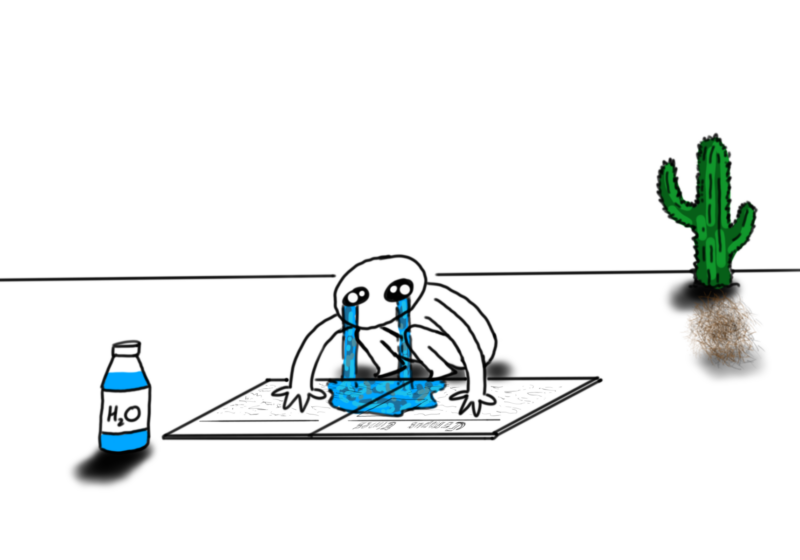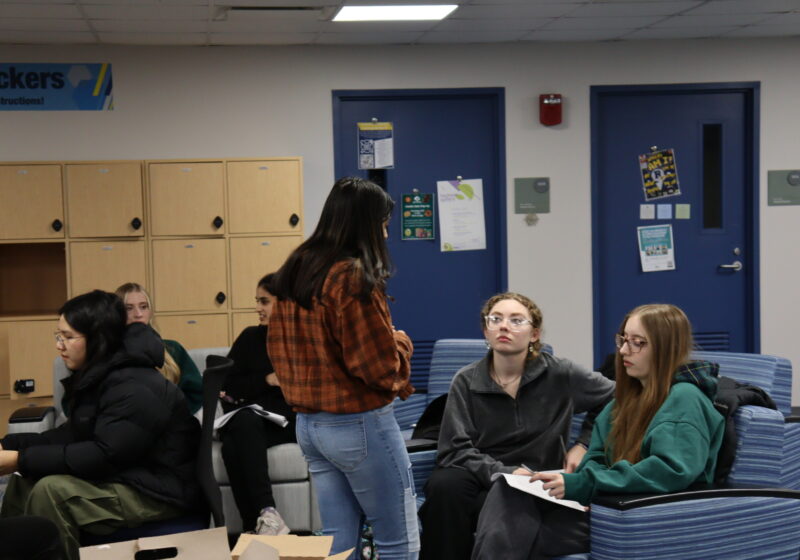A lot of “Aromanticism,” Moses Sumney’s debut album, feels like an unsettling dream. In a good way.
It swims around your head, gentle and sometimes taunting, as you struggle to pin it down. Like the “aromantic” title suggests, there’s a lot of body, but the heart takes a moment to reveal itself.
We enter the dream softly, through clouds, in the instrumental “Man on the Moon (Reprise),” a brief ascent of vocal harmony. The clouds part as Sumney sings the album’s first words, “Don’t bother calling / I’ll call you” on “Don’t Bother Calling.” The guitar here is plucked softly, almost thin in comparison to the swirling, atmospheric orchestration it’s laid upon.
Although the album’s instrumentation gives us a sense of shapelessness, Sumney introduces the idea of in a more concrete way, and in reference to himself, comments on how “you need a solid, but I’m made of liquid.”
The idea carries over into “Plastic,” one of Sumney’s earliest releases prior to this album, where he remarks on knowing “what it’s like to behold and not be held.”
Instrumentally and lyrically, the onset of “Aromanticism” feels a lot like mist. It unfurls thick and white around you, but when you stick your hand out into it, all you get is air.
It seems like Sumney experiences a similar issue, an inability to really touch, leading to the feeling of gentle conflict on all of the album’s tracks. At first, the struggle seems external, like on “Quarrel” where we hear Sumney assert that he doesn’t “ask for much /
just enough to live,” lamenting how “with you, half the battle / is proving that we’re at war.”
But, toward the end of the song, the drums become a little more frantic, the vocals higher, almost shrill. We hear the album introduce a darker, more-layered instrumentation where Sumney recognizes that “we cannot be lovers / long as I’m the other.”
The admission of this line leads into a stormy instrumental outro (“Stoicism”) sliced with thin cuts of synth. As the storm lets up, we hear a recording of Sumney reminiscing on his childhood, slam-poem style. He recalls telling his mother, “I love you,” and her response, a sigh, and then: “Thank you.”
With this recollection, Sumney’s billowing smoke swirls together, and for a second, we can almost see what shape it takes. But not yet.
From this point, there is a slight tone shift in the tracks that follow. The music is the sea, washing over you then pulling back, but through the whole thing, whenever you breathe, you can’t get rid of the slight sting of salt.
The salt, in this case, is Sumney’s piercing bouquets of vocal harmony and increased bouts of lyrical introspection.
There are times that make you feel wreathed in inky intimacy, Sumney’s voice honeyed and blooming, detailing his lack of fulfillment. Despite this, the album continues to assert its titular theme.
“Make Out In My Car” is the most lyrically-bare song on this record, with Sumney repeating that he is “not tryna go to bed with you / I just wanna make out in my car.”
In another context, this admission would be amusing. But its appearance on the album is blanketed in so much dissonant darkness, all it really makes you feel is uncomfortable.
Next comes another poetry interlude, “The Cocoon-Eyed Baby,” which, as the title suggests, also refers to childhood. Sumney refers to a “scroll that’s rolled […] in / the cocoon-eyed baby’s / swollen, clenched hand,” and although the baby screams “raw and grotesque,” he soon “learns to suppress.” The mist solidifies.
“Doomed” was the album’s first single, and on it, Sumney asks if he is “doomed” if his heart is “idle.” We can now attribute the album’s tumultuous emotion to Sumney’s tumultuous inner state, something he in turn attributes to a childhood of emotional disconnect. His childhood carries into an adulthood of unavailability, which he senses and seems to understand, but is unable to change.
A step toward change comes on the album’s final track, the pillowy “Self-Help Tape” that’s embedded with sweet, cascading harp and lush layers of vocal melody. The only lyrics come in the outro, with Sumney wistfully, with the help of various vocal effects, imagining “being free / tasting free / feeling free” and “feeling.”
The dream that “Aromanticism” is ends in the musical equivalent of a soft, sleepy sigh that comes when you first wake up. But there’s a bitterness that underlies the soft, and a sense that although we have left the dream, Sumney has not.





